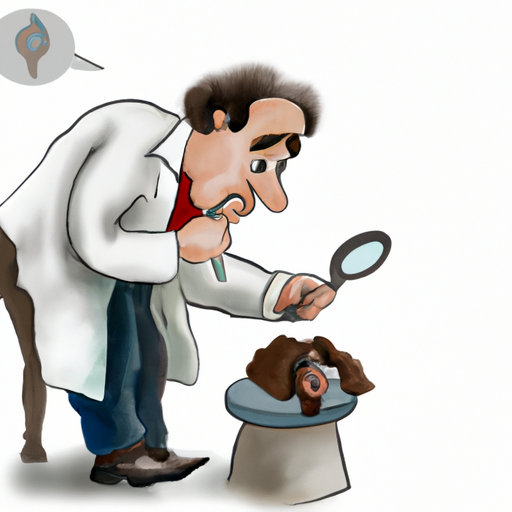As a caring pet parent, noticing blood in your dog’s stool can be alarming. But before you panic, let’s delve into the possible reasons behind this issue and what you can do about it.
Understanding Your Dog’s Poop
The first step in addressing this issue is understanding your dog’s poop. By paying attention to its color, consistency, and frequency, you can gain important insights about your dog’s health.
- Color: Healthy dog poop is usually chocolate brown. Any deviation from this color could indicate a health issue.
- Consistency: Healthy poop should be firm but not too hard, somewhat like play dough.
- Frequency: The frequency of your dog’s poop can vary based on diet and activity level, but generally, one to two times a day is considered normal.
Causes of Blood in Your Dog’s Poop
There are several reasons why you might be seeing blood in your dog’s poop:
- Parasites: Parasites such as hookworms, whipworms, or giardia could be the cause. These parasites live in your dog’s intestines and can cause bloody stools.
- Gastrointestinal issues: Conditions such as colitis, anal sac disease, or rectal injury can cause blood in the stool.
- Dietary indiscretion: If your dog has eaten something they shouldn’t have, it could cause gastrointestinal upset and bloody stools.
- Serious health issues: In some cases, blood in the stool could indicate more serious health issues, such as cancer or a bleeding disorder.
What You Should Do
If you notice blood in your dog’s stool, the best course of action is to consult a veterinarian as soon as possible. They can perform necessary tests to determine the cause and prescribe appropriate treatment.
| Action | Description |
|---|---|
| Collect a sample | If possible, collect a sample of the bloody stool to take to the vet. |
| Note any changes | Pay attention to changes in your dog’s behavior, appetite, or energy levels. |
| Stay calm | Remember, while it’s a cause for concern, bloody stool doesn’t necessarily mean a life-threatening condition. |
Preventing Future Issues
While you can’t prevent all health issues, there are steps you can take to minimize the risk of bloody stools in your dog:
- Regular deworming
- A balanced diet
- Regular exercise
- Regular vet check-ups
Frequently Asked Questions
Q: Should I take my dog to the vet immediately if I see blood in their stool?
A: Yes, it’s always a good idea to consult a vet if you see blood in your dog’s stool.
Q: Can a change in diet cause bloody stools?
A: Yes, sudden changes in diet can cause gastrointestinal upset, which may result in bloody stools.
Q: Can stress cause bloody stools in dogs?
A: Yes, stress can cause a condition called colitis, which can result in bloody stools.
Remember, as a caregiver, your dog relies on you for their well-being. Stay informed, stay observant, and always consult with a vet when in doubt.



